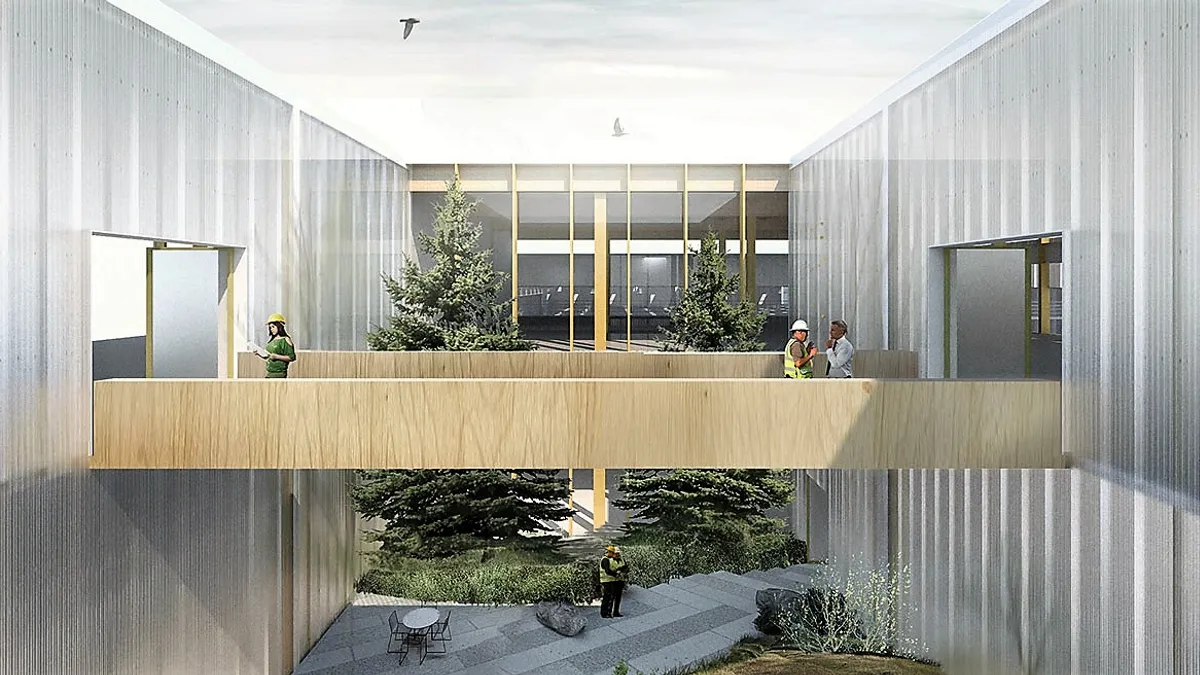Dive Brief:
- Japanese conglomerate Softbank Group, through its $100 billion technology investment arm Vision Fund, will lead a $700 million Katerra financing round that is expected to drive the four-year-old construction startup’s value to $4 billion, according to The Information. Katerra’s revenue could surpass $2 billion in 2019, and there is early talk of an initial public offering in the next few years. Katerra did not confirm the details of The Information report to Construction Dive, but said that it "did not correct the article."
- It is almost a year to the day that the Vision Fund led an $865 million financing round for Katerra to help the company finance an expansion of its manufacturing operations. Other investors in that round included the Canada Pension Plan Investment Board, Tavistock Group, Navitas Capital and DivcoWest, but there is no information yet about what other investors might be part of this latest investment.
- Unlike many other venture capitalists, the Vision Fund is a big investor in construction- and real estate-related companies. The fund has also invested in office space coworking company WeWork, home-selling site Opendoor, real estate brokerage Compass and “smart” window manufacturer View, the maker of View Dynamic Glass.
Dive Insight:
Katerra uses the latest construction technology to provide end-to-end building services including architecture, interior design, engineering, materials, construction management and general contracting. The company also provides labor management services to other contractors and offers materials via direct sales, although it has made a name for itself thus far with its turnkey modular construction offering.
The Silicon Valley-based firm has been aggressive with its industry acquisitions and partnerships as well. In October, the company announced it had acquired Denver general contractor Bristlecone Construction Corp., which now operates under the Katerra banner. Company officials said the addition of Bristlecone would contribute to Katerra’s construction expertise. Last year, The Information also reported that the startup was having problems with its onsite construction processes and production, as well as with its ability to meet material delivery schedules and the automation for the manufacturing of certain building components. Katerra denied the report's validity.
The company spent 2018 beefing up other areas of its businesses through acquisitions as well. In June, for example, it announced that it had merged with Indian manufacturing technology company KEF Infra. At the same time, the company said the new venture had already brought in more than $3.5 billion in bookings for its offsite manufacturing and building services.
Katerra also acquired two architecture firms last year, doubling its staff size in about two weeks. The company made deals with Michael Green Architecture, based in Portland, Oregon, and Atlanta-based Lord Aeck Sargent, instantly leaving Katerra with 31 U.S. state architecture licenses and credentials in the Canadian provinces of British Columbia and Alberta.












